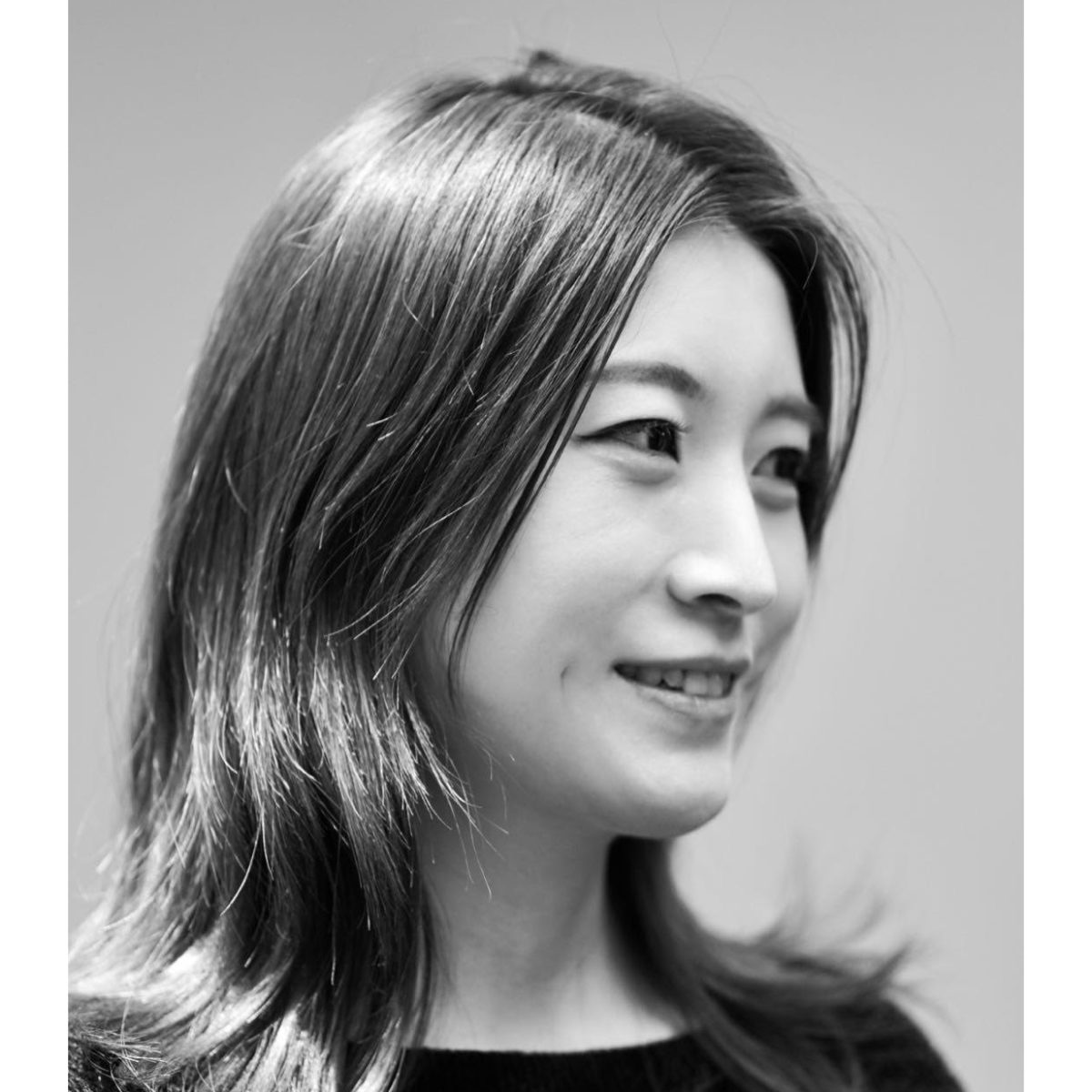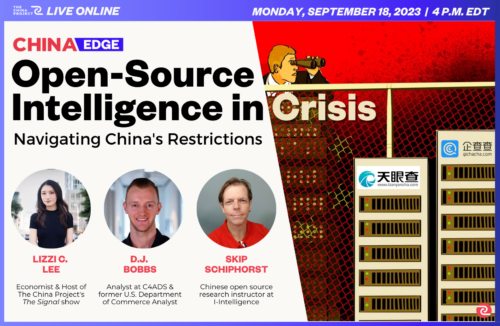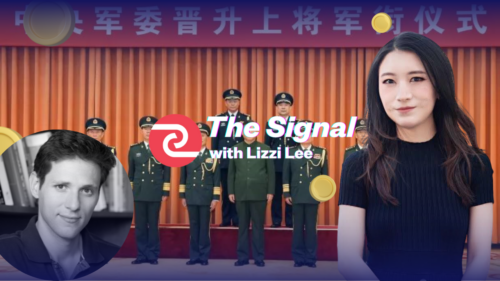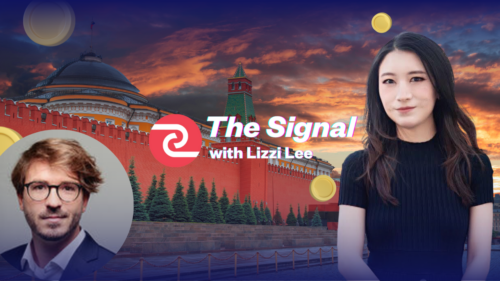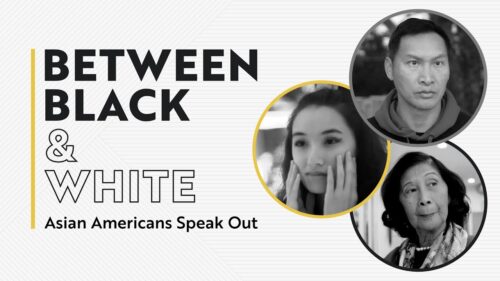The ascension of Xi Jinping | Live with Lizzi Lee
Alfred Chan, professor emeritus at Huron University College, Western University, traces the rise of Xi Jinping, who is all but certain to secure a third five-year term.

In this episode of Live with Lizzi Lee:
Alfred Chan, professor emeritus at Huron University College, Western University, discusses the rise of Xí Jìnpíng 习近平 through the ranks of the Communist Party, while also pushing back against monolithic views that Xi is the sole decision-maker within China’s ruling body.
Below is a transcript of the video:
Lizzi: Joining me today is Professor Alfred Chan, author of a new book, which is the most comprehensive and detailed study of Xi Jinping’s entire life, history and political career from 1953 to 2018. Thank you so much for joining me, Professor Chan.
Alfred Chan: Thank you. Pleasure to be here.
Lizzi: So, Professor Chan, your book contains details about how Xi Jinping was recruited and groomed to be the next leader of China. I wonder if you can tell us more about why the Party elders at that time picked Xi Jinping to be the next leader for the country.
Alfred Chan: Well, discussions of Chinese political successions often focus on factional power struggle because there are no free, open and universal elections in the Western sense to change the political leaders.
China watchers tend to rely on their intuition and educated guess to think about the change of leaders. But then the notion that the Party elders picked Xi Jinping is not actually correct.
Dèng Xiǎopíng 邓小平 and the Party elders did pick Jiāng Zémín 江泽民 after the 1989 Tiananmen events. And Hú Jǐntāo 胡锦涛, too, was also similarly picked in 1992 to become a leader, and he was being groomed for 10 years before becoming General Secretary. And he served a record of 20 years in the standing committee of the Politburo.
Now, Xi Jinping was not picked until 2007. In fact, his ascension to power is a much longer story. And his gradual rise can be traced back to the 1980s.
And this is important to note because the central organizational department played a major role in recruiting, grooming and scrutinizing a whole generation of leaders, not just one or two, but what the Chinese call the third echelon of reserve cadres.
They pick cadres who were below 45 years old and with a university education. They pick these people and groom them and rotate them from administrative posts to administrative posts, in order to groom them.
So, when and Xi Jinping went through the process, and not until 2007, he was inducted into the Politburo Standing Committee. And then he was groomed for five years before becoming general secretary. Now, Hu Jintao and Wēn Jiābǎo 温家宝, of course, had a role to pick Xi Jinping. And Jiang Zemin, the elder, might have a role to play.
Now, why they picked Xi Jinping… I believe that he has a fairly complete resume, especially in comparison with the other hopefuls. For example, firstly, he was scandal-free. He had served in the village. He had governed special economic zones. He served in the county. He was also a provincial chief of coastal areas and he had experience dealing with Taiwan. And he also has a stint as secretary to the minister of defense, Gěng Biāo 耿飚. And in this relationship, he was deemed to have military experience.
Now, Zhejiang, his stint in Zhejiang is important, because Zhejiang is the bellwether of China’s provinces. It was and still is, China’s richest province. And because of the advanced economic development there, social and political issues tend to appear before the rest of the country. And that’s why the Central Party regards Zhejiang as the testing ground for new policies.
So for all these reasons, Xi Jinping was picked in 2007, and finally became General Secretary in 2012.
Lizzi: So that’s super helpful. We usually think of CCP elite politics as a giant black box. I think China watchers internationally have been trying to crack the code of decision-making. How has your research informed us on how policy and personnel decisions are reached within the Party apparatus? I wonder if the decision-making process has undergone fundamental changes during Xi Jinping’s rule.
Alfred Chan: Political decisions are always black boxes in all political systems. And in China, of course, things are more secretive, and deliberations in the Politburo are not published. But this is not unique.
In the West, we have a notion called cabinet confidence, meaning that cabinet decision-making in the West is not disclosed. Everything that goes on in the cabinet is confidential, according to the notion of cabinet confidence.
And in fact, in parliamentary system, cabinet members take an oath of solidarity so that they can freely consider and discuss all options and opinions before they can make a decision.
And a stereotype of a monolithic decision-making process, one-man rule, or chairman of everything… I think those are not particularly accurate descriptions of Xi Jinping and the notion of aggrandizement of power.
No doubt. Xi Jinping dominates decision-making. He has the final say, but his relationship with his colleagues in the Politburo is really codependent. There’s a great deal of division of labor. There are different skill sets and experiences, and it’s wrong to assume that every policy springs from the head of Xi Jinping, as it’s often assumed. In fact, I mean, Xi Jinping in general would basically lay down the general principles. And those general principles are often being flushed out by the bureaucracy, by his colleagues and certainly the bureaucracy- approximately 6 million strong. And they would operationalize many of these general principles.
For example, Premier Lǐ Kèqiáng 李克强 oversees the State Council, which controls 21 ministries, three commissions, the central bank, the Central Audit Office, and so on. Not to mention the 31 provinces.
So, I think we need to correct our simple, simplified views of China’s politics of policymaking as a simple, monolithic, monolithic process dominated by one man.
For example, one observer claims that Xi Jinping is so dominant that he would not even need the Politburo. I think that’s a gross examination exaggeration.
Now, if we look at the legislative process, many of these issues, like finance regulation, environmental protection, population policy, unemployment, and so on and so forth. And there are numerous discussions by experts and think tanks.
And in the West, we know so little because only the tip of the iceberg of all these discussions available in writing is translated into English. And perhaps that’s why in the West we complain about the lack of information.
But if one looks deeper, one can locate a tremendous amount of material and information about virtually every issue being considered by the Chinese political legislature.
Lizzi: It’s probably too early to speak of Xi Jinping’s legacy. But from your perspective, what has been Xi Jinping’s greatest policy achievement and his biggest mistake during the past decade?
Alfred Chan: I would prefer to refer to the Xi Jinping administration because we often say in the West, China’s politics is so personalized. We, in fact, assume everything is done by Xi Jinping and Xi Jinping is the only decision maker.
And that really reinforces the notion of the personalized style of politics. I would prefer to refer to the system as the Xi Jinping administration. Now we will need context to evaluate the achievements and the mistakes of the Xi Jinping era. There is everyday discussion in the media — there are numerous mistakes, but I would rather focus on three contextual factors in order to give them more contextualized knowledge.
The first one is leadership in a developing country. Now, China is still in many respects a developing country. The institutions are weak and government capability is usually really low. And there are many social and ethnic cleavages. And citizens demand a lot of things like better living standards and more freedom and so on. This is why leadership is so important.
And very often leaders must build institutions from the ground up. And they also need to transform the political culture. A government does not have to do everything in order to survive.
For example, in the West, we have developmental agencies. As observers we tend to have a long list of conditions about China, which China must meet in order to modernize and so on. China must eliminate corruption and eliminate pollution, so on and so forth. All of this is unrealistic.
Now, according to the concept of good enough governance, the whole long list of conditions that must be satisfied before China can be called modernized is unrealistic. And from this perspective of good enough governance, if some thresholds are reached, economic and political development can occur. In other words, this is another way of saying all good things cannot happen at the same time. And many of Western expectations are unrealistic.
Now a third perspective is that when we look at the credible surveys done by people like Bruce Dickson of George Washington University and the Ash Center at Harvard University and others, we know that the Chinese citizens tend to have a high level of satisfaction with their government, and they are confident with the system. And they think that that prospect is fairly good.
In particular, Dickson’s very sophisticated survey finds that most Chinese regard themselves as already having a democracy. This might be shocking to the West. But this is the finding of Professor Dickson’s, and he expected it. He finds that the Chinese expect even more democracy in the future.
Now, of course, there is a caveat. The Chinese knowledge of democracy really means what the state can do to attend to the interests of the people. And they look at democracy less as formal voting or individual civil rights. So many of the results make sense.
In terms of achievement, I would say that Xi Jinping’s administration has built institutions, domestic and international. Domestically, for example, to rebuild the judiciary system, and institutionalize anti-corruption. Those are the institutions being built, and there is a commitment to the environment.
We all know that the environment has improved somewhat, particularly in the major cities in China compared to five or even ten years ago. There are a lot more social services, social security. There’s the abolition of the hùkǒu 户口 system, the one-child policy system. There’s always the policy to foster economic growth, anti-corruption, digital economy, regional integration, anti-poverty.
And externally, they are free-trade agreements. Institution building, including the Belt and Road Initiative and AAIB. Those are very good examples of institution building and of course, they are controversial in the West. Of course, we can criticize all kinds of things, which I call institution-building in China.
Now, perhaps strong, decisive leadership is another hallmark of Xi Jinping’s leadership to counter the ever-present danger of disruption to stability. Those are the forces that are always associated with ultra-rapid modernization.
From modernization theory, we know that modernization, particularly a rapid one, is not a smooth and easy process. It is filled with challenges with wind traps and filled with instant instability.
Political blunders, of course, we hear them from the media daily. For example, Western media said that Xi Jinping is holding back the Chinese economy, that he is anti-market and his zero-COVID policy, and so on and so forth. And I can also draw attention to the repressive measures in Xinjiang, Hong Kong, and Taiwan. Those are real issues and not to be ignored. But we need to balance the many aspects in order to achieve an objective evaluation of the Xi Jinping administration.
As a political scientist and social scientist, I am interested in explaining in an objective manner by references to theoretical and comparative social sciences.
And we know that then China, as well as the world, is entering a stage of the turbulent and unstable international environment. And henceforth, China’s reaction should also be looked at in that context.
Finally, one other perspective is the theory of revolution. Now, by taking this perspective, I mean that theories of revolution claim that when a revolution is encountering a perceived external threat, the domestic policy would tend to become more violent and more radical at home.
Here we are talking about external and internal linkages. And this revolutionary theory has been used to explain revolutions in France, the U.K., China. And even in America. I think it is still useful because in many respects China today there is still a legacy of the revolution.
The Chinese still see so much in between a revolution, not so much wildly revolutionary, but in a revolution that is not being consummated. And when they perceive a lot of threats, policy tends to be more violent and hostile at home. This applies to the United States.
Today I guess in the U.S. we’re still believing that the legacy of the revolution in the 16th century about the division between the north and south and the context of the interpretation of the constitutions. So, this is by no means unique to China. And I think this is an important perspective to look at China in distilling.
Lizzi: And speaking of the third term, which is all but secured in the next round of Party Congress, who do you think are the rising stars likely to be tapped for the Politburo Standing Committee? And what will be Xi Jinping’s grand plan for his third term?
Alfred Chan: In the Politburo perhaps 11 of the 25 numbers will be replaced according to the term limit of 68. Now the 68 term limit may or may not hold. 68 in age is not very old in contemporary standard.
Before I look at the possible inductees into the Politburo Standing Committee, I would like to also give you the context. Now, we all know that the leaders in China are promoted step by step.
That is to say, they are normally promoted into a so-called alternate to the Central Committee and then they become full members of the Central Committee, before they are eligible to become an alternate of the Politburo. Now the alternate has now been abolished. Then they become full members of the Politburo, before they can go into the Politburo Standing Committee. And in this way, we are talking about a staggered progression and a relay race.
So the top Politburo Standing Committee membership can be very predictable because we can simply take a look at who is available in a central committee and who is available in the broader Politburo.
And this is why right now there are numerous speculations about who will become the next seven in the Politburo Standing Committee.
But, of course, the membership of the Politburo Standing Committee is not fixed. It varies from about five to 11. So there is a great deal that the Xi Jinping administration can play around. They could expand it or even contract it.
So if the 68-year retirement age limit still holds and if we look at it step by step promotion, and the small size of the Central Committee, many of the many of them are not meant to go further, because we know that by age, by experience, they will not be able to go into the Politburo. So by looking at those prospects, one or more of the following members may enter into the Politburo Standing Committee. Wāng Yáng 汪洋 has been around for a long time. Wáng Hùníng 王沪宁 may or may not be in being an ideologue Politburo Standing Committee. I think one of the hottest members, of course, is Chén Mǐn’ěr 陈敏尔 of Chongqing, who was born in 1962. Dīng Xuēxiáng 丁薛祥, born in 1960, is the director of Central Office. Hú Chūnhuá 胡春华, vice premier, was born in 1959. Lǐ Qiáng 李强 from Shanghai. Lǐ Xī 李希 from Guangdong… Those are most likely to enter the Politburo Standing Committee.
And perhaps one or more others like Wang Yang, Wang Huning, may enter the Politburo Standing Committee. We all know that there are no women will enter the Politburo Standing Committee because of the glass ceiling. Even in the Politburo this time, it might be all male. One hopeful is Shèn Yìqín 谌贻琴, a Bai-minority, and she’s the only provincial Party chief. So she might be a top candidate if she enters the Politburo. She would be one minority and one woman.
Another promising woman is the Mongolian woman, Bù Xiǎolín 布小林, but she is of questionable health, so it’s not very likely. So currently there are all kinds of games going on about guessing who would enter the Politburo Standing Committee.
But if you look at the structure of the Politburo Standing Committee, there’s the general secretary, there’s the premier, there’s one person who is the chair of the National People’s Congress and another would be chair of the Chinese People’s Political Consultative Conference, the CPPCC. This is the advisory committee for the Party.
And then another position would be reserved for the Secretary of the Secretariat and another should be the head of the Central Discipline Inspection Committee. Another would be a vice premier.
So if you look at those positions, then, then we can fit our prospective leaders. So it’s quite interesting. People have already made all kinds of predictions about the pool to fill in those slots and we will see. Now Hu Chunhua is perhaps one of the major rising stars and not surprisingly so. In fact five years ago he was already regarded as one of the two successors, though he didn’t make it. But this time it’s almost certain that he will get a prominent place. And my hunch is also Li Keqiang, too, might remain. He’s 67, not quite 68.
And because of the turbulent time, he might be persuaded to stay on for one more term. He cannot be the premier because the premier has a two-term limit. But he might be persuaded to stay on because of turbulent times, because of uncertainty and because of the need of the institutions.
I tend not to subscribe to the power maximization theory that Li Keqiang wanted to stay on because he craves power. I tend to use more institutional analysis to interpret the makeup.
The Politburo might close in because they know that they are entering a very unstable and turbulent time and they might have to hang together in order to keep the Party going.
And for this reason, I would expect that Li Keqiang might have a major role to play. Of course, there are all these speculations that now Xi Jinping might become the chairman and Li Keqiang may become the general secretary. I tend to regard that as rumors.
